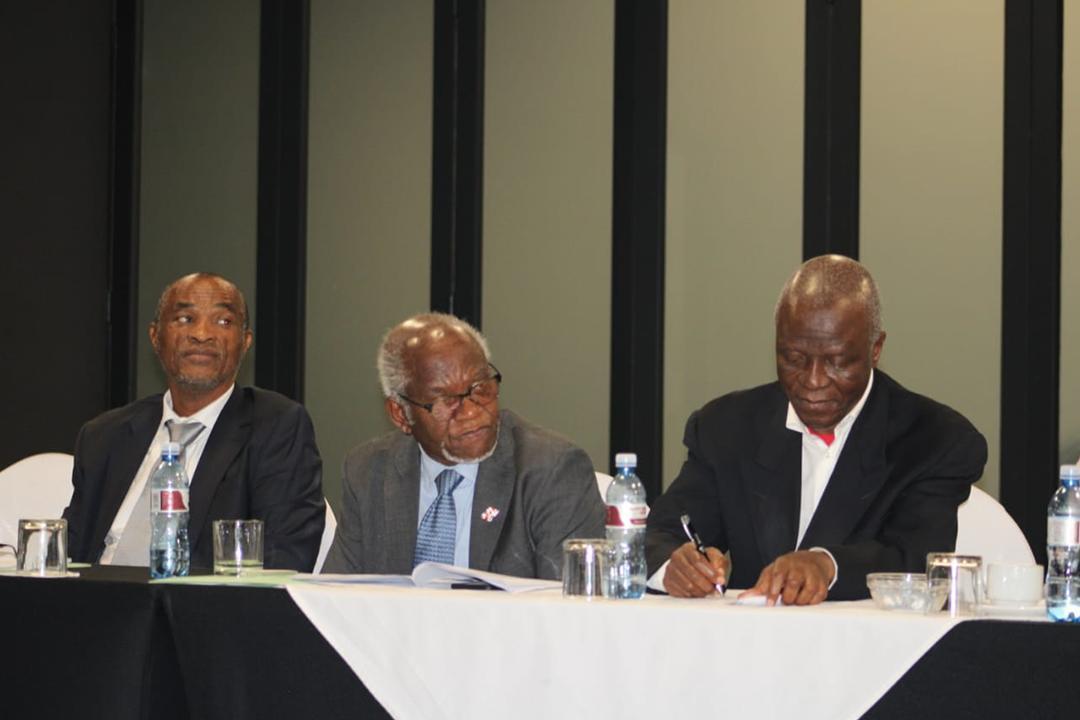Africa-Press – Eswatini. If ever there was a time to clean house and sharpen the moral compass of public leadership in Eswatini, it is now.
With suit jackets off and pens out, Members of Parliament and government officials gathered at the Happy Valley Hotel this week for a workshop that may just mark a turning point in how public officials are held accountable.
The focus? The Leadership Code of Conduct Bill, 2025, a powerful new tool designed to tighten ethical behaviour in public office and banish murky dealings to the past.
Chairing the session was Lobamba MP Michael Masilela, who reminded participants that the workshop was not just another meeting, but a national moment to shape the standards of integrity and trust.
“This is a chance for all of us to align on values that make public service something worth believing in,” Masilela said.
Opening the proceedings, Minister of Justice and Constitutional Affairs Prince Simelane did not mince his words. “This Bill is crucial,” he told the room of lawmakers.
“It’s time we uphold standards that ensure our leaders conduct themselves professionally and are not caught in corrupt dealings. Integrity is not optional.”
The proposed law sets clear rules: public officials must declare assets and liabilities, account for any gift exceeding E5 000 and explain themselves within 30 days if the Integrity Commission comes knocking. Non-compliance? Expect a fine of up to E10 000 or worse, a stint behind bars.
“The Bill is similar in force to POCA,” said one legal advisor during the clause-by-clause discussion. “But it goes further, demanding transparency even in how leaders handle gifts and hospitality.”
Chief Dambuza Lukhele, representing the Human Rights Commission, emphasized that this was more than paperwork.
“We’re here to reinforce trust between leaders and citizens,” he said. “People deserve to know that those in charge are not abusing power or resources.”
As the workshop heated up, Mayiwane MP Sicelo ‘KhungaNkhosi’ Dlamini passionately called for wider public education on the Bill. “No Liswati should be left behind,” he urged.
“This law must not live only in Parliament. Let’s take it to the people in their communities. Everyone needs to understand it, from elders to the youth.”
Indeed, while the Integrity Commission will have the muscle to investigate and prosecute misconduct, including the misuse of public property and abuse of office, the real power may lie in public awareness and vigilance.
The Bill even goes as far as to highlight who should be appointed into key roles: seasoned judges, persons with disabilities, and individuals with traditional and constitutional knowledge. That, according to the legal team present, ensures inclusivity and fairness in enforcement.
Beyond the penalties, which include possible E25,000 fines or up to 10 years imprisonment for misuse of public assets, the Bill’s deeper promise lies in what it symbolises: a shift in Eswatini’s governance culture toward accountability, transparency and ethical leadership.
“The people are watching. They want leaders who don’t just talk about integrity but live it,” said Prince Simelane, setting the tone for what could be one of Eswatini’s boldest legislative chapters yet.
As the nation awaits the Bill’s passage through Parliament, one thing is certain, public office will no longer be business as usual.
For More News And Analysis About Eswatini Follow Africa-Press







